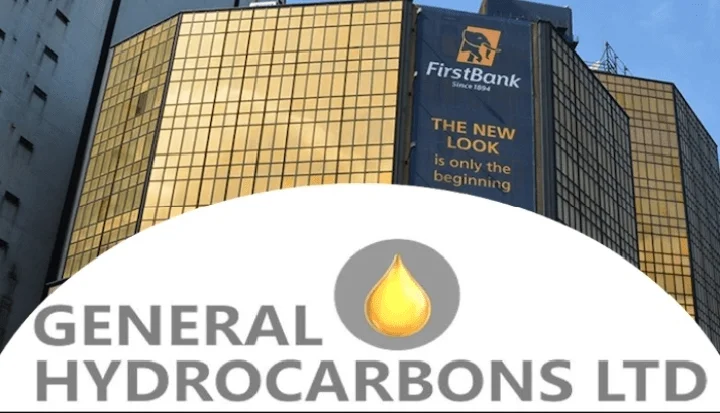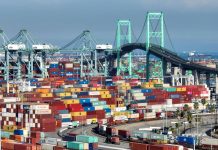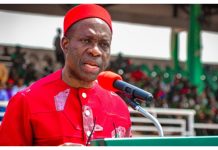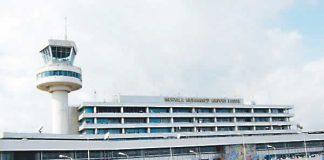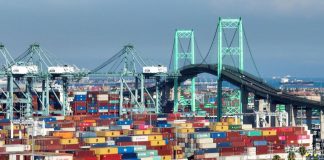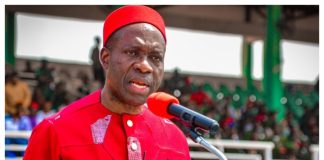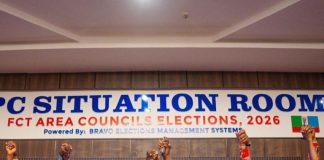🌿 Ruzu Non-Alcoholic Herbal Bitters
Ruzu Non-Alcoholic Herbal Bitters is a natural health supplement specially formulated to:
- ✅ Promote general wellness
- ✅ Detoxify the body
- ✅ Support the treatment of various ailments
Made from a powerful blend of 100% organic and medicinal herbs, Ruzu is completely alcohol-free, making it ideal for:
- 👪 All age groups
- 🌱 Health-conscious individuals
- 🌿 Anyone seeking non-alcoholic herbal remedies
Whether you're looking to boost your vitality, cleanse your system, or support healing the natural way, Ruzu Bitters offers a trusted herbal solution.
In response to allegations of debt to First Bank of Nigeria (FBN) Plc, the management of General Hydrocarbons Limited (GHL) has denied any such claims, stating that it owed the bank nothing, much less $225 million.
GHL clarified that there was a current moratorium pending the commercial oil production, citing many agreements between it and FBN.
It additionally claimed that FBN’s assertion of indebtedness, particularly in the media sector, was “misleading and malicious,” and that a Federal High Court ruling had been rendered in its favor.
Citing media reports from January 10/11, including social media, that stated that a “Federal High Court in Lagos was reported to have frozen the accounts of GHL in all financial institutions in Nigeria and restrained the banks from releasing funds to the company owned by Mr. Nduka Obaigbena, the Chairman of ARISE Media Group” over alleged outstanding indebtedness amounting to $225,802,379.79m to First Bank,” GHL’s Director of Strategy and Operations, Abdelmuizz Bello, emphasized that FBN’s claim was false and misleading.
Bello clarified further by recalling how, on May 29, 2021, the oil company and First Bank signed a binding, enforceable Subrogation Agreement.
FBN was to finance GHL’s exploration, production, and development of OML 120 in exchange for a 50:50 profit-sharing arrangement from the OML’s oil profits after statutory payments and taxes for a period of eight years.
According to Bello, the FBN 50% stake would then be used to settle its solvency problems by paying down its about $718 million in non-performing loans, which were subsequently discounted to $600 million.
“.”The FBN debt was sold for $600 million as an Eligible Banking Asset (EBA) in order to remain afloat, with assistance from GHL. Before rebuilding the bank without satisfying GHL’s demands, the FBN obtained the funds from Assets Management Company of Nigeria (AMCON).
“The FBN non-performing loan resulted from FBN’s careless and unsecured lending to Atlantic Energy under different Strategic Alliance agreements, which GHL had nothing to do with or relate to.”The agreements made it plain that the Non-Performing Loan had nothing to do with GHL other than the fact that FBN would utilize half of the earnings from OML 120 owed to it under the Subrogation Agreement to close the hole the Non-Performing Loan (NPL) had left in its books.
He clarified that Atlantic Energy’s OMLs 26, 30, 34, and 42 were significantly different from GHL’s OML 120.
By signing a tripartite agreement with GHL, FBN was able to declare a profit of N151 billion ($377.5 million) for the year ending December 31, 2021, rather than a loan loss of N302 billion at the then exchange rate, according to the Director of Strategy and Operations at GHL, who said that the agreements with the oil company allowed FBN to return to good standing.
Bello said that when GHL executed the contract, it did so with the conviction that the FBN was a trustworthy bank that would fulfill its commitment to reimburse OML 120.
Confident that FBN’s inaction could have led to a challenge to its audited financial statement, the oil company questioned whether those earnings could still be legitimate “given its non-compliance with conditions precedent for its return to profitability?” And did investors have the necessary information about its present rights issues?
Bello further remembered that FBN had a market capitalization of N256.6 billion before to the agreement, and that the bank would have had a negative capital of N46 billion if it had reported a loss of N302 billion.Then, FBN realized right away that GHL’s subrogation agreement was profitable. As a bank with integrity, GHL entered the agreement with the belief and confidence that the FBN would fulfill its commitment to support OML 120 and would do so going forward.
However, it has obviously not. FBN’s market capitalization, which was N256.6 billion on November 30, 2024, more than tripled to over N900 billion as a result of the agreements with GHL,” he stated.
According to the director, GHL’s grievance with FBN was that it had not fulfilled the financial obligations it had agreed to and performed, which it had assumed would be made at the time of signing the agreement. This, in turn, created significant obstacles for the development of OML 120.
Even though FBN has already distributed $185 million, he claimed that the payout process, which was supposed to occur five days following the financing request, occasionally took up to seventy days.
GHL said that as a result, service providers—led by Schlumberger, Baker Hughes, and Century—who were meant to get payment for multiple interventions simultaneously instead received payments at irregular intervals.
According to the explanation, the scenario led to significant downtime and day rate losses, which resulted in inefficiencies and losses of over $147 million, including an arbitration award given to one of the service providers.
Bello disclosed that, in contrast to FBN’s assertions, its credit and risk team had examined and authorized all contracts and invoices owed to the contractors hired for the construction and management of the oil mining lease and had paid these contractors and service providers directly.
The claims of money being diverted to GHL are therefore unfounded and confusing because FBN paid service providers directly after its credit and risk teams had reviewed and approved the payment.
Read Also: Enugu Hosts President Tinubu on Significant Visit
In the end, when FBN became involved in the process of reviewing, approving, and paying all invoices, it became a lender, risk manager, and operator all at once. In addition, FBN authorized and subsequently hired a CFO for GHL, who would be solely in charge of all financial outlays.It is also crucial to note that the oil block is located more than 75 kilometers offshore from Nigeria and has a Floating Production Storage and Offloading (FPSO) that needs logistics and transportation support. The FPSO and its accompanying submersible rig employ more than 250 people.
This has required extensive logistics preparation, including more than 500 helicopter sorties and the daily provision of platform supply vessels, security vessels, mooring vessels, and other vessels over the previous 40 months. All of these expenses, including food, were examined, authorized, and paid for directly by FBN’s risk and credit departments.
“Therefore, the allegation of diversion in certain publications is wicked, malicious, false, injurious, and libellous, given the approval process for the funds established by FBN and the payment made directly to contractors and service providers,” he stated.
Furthermore, according to the Facility and Tripartite Agreements, GHL insisted that the $185 million loan that had been disbursed was not owed because it was still under the moratorium period.
“The loan is due only when there are profits to be shared 50:50 from commercial oil production,” Bello said. More funding is obviously required, but FBN has declined to supply it.With this obviously contrived crisis, FBN is attempting to use its directors and other proxies to intimidate and compel GHL to withdraw from the deal and seize control of the oil bloc, rather than fulfilling its function as a lender, which was saved from the abyss.
Bello further noted that First Bank knew the loan was not due for return, therefore they didn’t pursue repayment of the facilities until after they just lost in court.
After making gains up front, it is obvious that FBN lacks the liquidity to fund the project as agreed upon.
In the event that FBN continues to be uncooperative, GHL is looking to use its options under the agreement to locate new lenders and partners that can save the project for Nigeria in an effective and economical manner.In the event that FBN is unable to provide alternative finance, GHL is permitted to look for other financing under a condition in the Subrogation Agreement.
The company asserted that GHL had no choice but to petition the court for protective measures and injunctive reliefs in order to safeguard its business and economic interests and seek a settlement through arbitration after FBN failed to perform under the provisions of the Subrogation Agreement.
He also revealed that on December 12, 2024, GHL had petitioned the Federal High Court, and following arguments from both parties, the court issued the following injunctions against First Bank: “An Order restraining FBN from obstructing or preventing GHL from obtaining or securing loan facilities or funding necessary for the exploration or operation of OML 120.”
“An order prohibiting FBN from calling or requesting anything, or from taking any action whatsoever, to enforce any security, receivables, instrument, finance documents, or assets of GHL that have been charged as security.” “An order prohibiting FBN from designating an operator, asset manager, or any individual or organization of the same/similar kind with regard to OML 120, except until the arbitration proceedings between GHL and FBN are heard and decided.”
The director expressed regret that FBN, using the same attorneys who lost in the Federal High Court, presided over by Justice Allagoa, obtained an interim Mareva injunction during recess without disclosing the previous ruling, preventing GHL and its shareholders from operating their accounts over a fictitious and unfounded debt of $225.8 million.
“The Mareva injunction, which it obtained on December 30, 2024, has since been weaponized by FBN to confuse the public and befuddle the issues,” he continued, characterizing the incident as a blatant abuse of the legal system.
Despite noting that “this impunity is now back before the Federal High Court, Lagos,” GHL said it was confident that justice would be done eventually.

